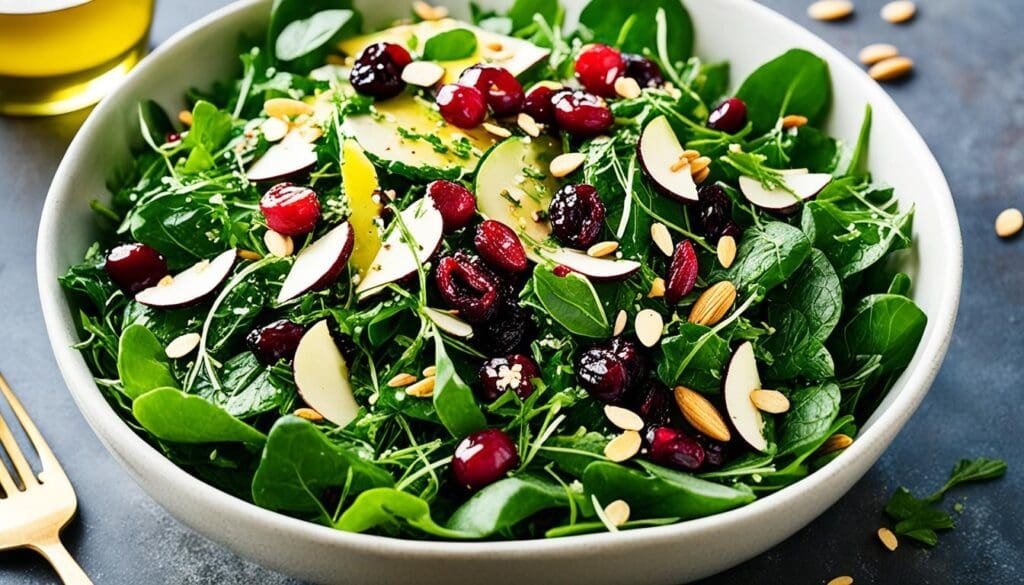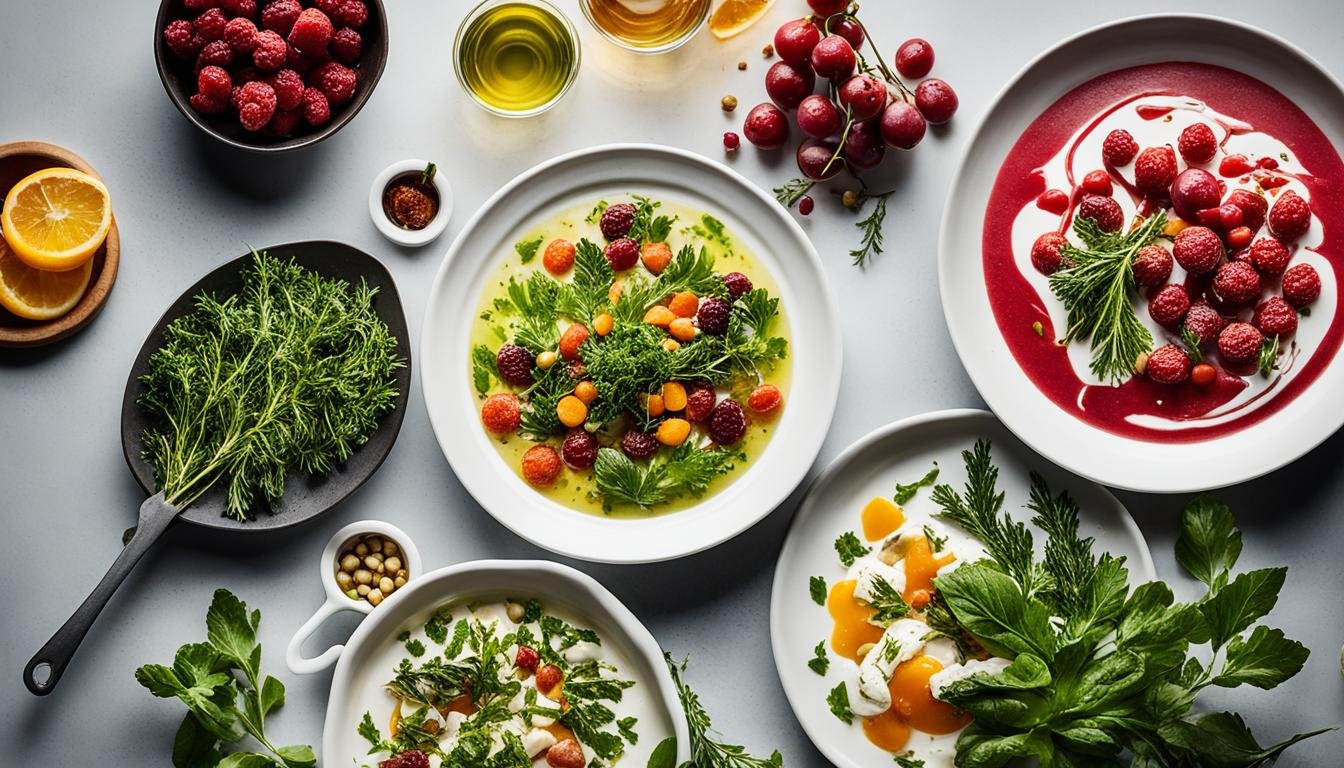Did you know that 95% of Australians have never heard of verjus? This culinary gem, pronounced “vair-ZHOO,” is set to revolutionise your cooking. Verjus, the pressed juice of unripe grapes, offers a unique flavour profile that’s taking modern kitchens by storm.
Verjus uses are wide, from making salads better to crafting creative cocktails. It’s not as sharp as vinegar, so it adds a lovely sweet-tart taste that’s different. Exploring what is verjus means finding a hidden flavour world dating back to medieval times.
Ready to uncover the secrets of this ancient ingredient? Let’s dive into the world of verjus and transform your cooking experience.
What is Verjus: Unveiling the Culinary Secret
Verjus is a special juice used in cooking for many years. It comes from unripe grapes and has a tart taste. It’s different from other sour things in recipes. Let’s find out more about verjus and its special qualities.
Origins and History of Verjus
In the Middle Ages, verjus was key in Europe’s kitchens. People liked it not just for taste but also for health. Families shared recipes over time, adding their own flavours to this versatile sauce.
How Verjus is Made
To make verjus, pick unripe grapes in the middle of their growing season. Squeeze them gently to get the juice. This juice is then filtered while cold to keep its fresh taste. Different grapes make red or white verjus, each with its unique flavour.
Verjus vs Vinegar: Understanding the Difference
Vinegar and verjus are different in how they’re made and taste. Verjus is not fermented, so it’s not as sour as vinegar. It has a fruity depth, adding mild tartness to food. Chefs love using it for a subtle, balanced taste in their dishes.
The Versatile Uses of Verjus in Modern Cuisine
Verjus is a secret ingredient that chefs love. It brings a special flavour that vinegar doesn’t have. It’s perfect for making salads tastier or cocktails more interesting.
Enhancing Salad Dressings and Marinades
Using verjus in salad dressings changes everything. Mix three parts oil with one part verjus for a zesty taste. Red verjus is great with strong greens, while white goes well with lighter leaves. It also makes meat in marinades super tender, keeping the flavour just right.

Verjus in Sauces and Deglazing
Adding verjus can give sauces a special kick, especially good with fish or chicken. It’s also great for deglazing pans, getting all the delicious bits off the bottom. While lemon juice can stand in sometimes, it doesn’t quite offer verjus’ unique flavour.
Innovative Applications in Cocktails and Non-Alcoholic Drinks
Australia is catching on to the verjus drink trend. It’s a hit with alcohol in cocktails. Yet, it’s also a fancy choice for non-alcoholic options, replacing citrus in mocktails. A bit of verjus in sparkling water makes a classy, alcohol-free drink.
Choosing and Storing Verjus for Optimal Flavour
When you pick verjus, consider its origin. French verjus, from places like Dordogne Perigord, is rich in fruit flavour. It has a bit of tang. For those who like a hint of green apple, California verjus is a good choice. The variety of grapes and the region they come from affect the taste.
To get the best taste, choose cold-filtered verjus. It tastes better than the kind that’s heated fast. Keep your verjus in the fridge after opening. It will stay tasty for 2-3 months. To keep it longer, freeze it in ice cube trays.
Verjus has health benefits too. It’s kinder to your stomach compared to verjus vinegar. In Australia, chef Maggie Beer has been making top-quality verjus since 1985. She offers white and red (Sangiovese) varieties. These add great flavour to your dishes.
Frequently Asked Questions
What is verjus?
Verjus is the juice of unripened grapes, pronounced “vair-ZHOO” or “vair-juice.” It’s sometimes red, sometimes white. Verjus tastes sweet and tart, milder than vinegar.
How is verjus different from vinegar?
Verjus is less sour than vinegar, with a wine-like touch. It’s not made through fermentation. This means it has a fresh, fruity taste.
How is verjus made?
Unripe grapes are picked at the veraison, or midway, of their growth. Their juice, verjus, is obtained by gentle pressing. It’s then cold-filtered to lock in the flavour.
What are some uses for verjus in cooking?
In cooking, verjus is very handy. Use it for salad dressings, marinades, or sauces for meat and fish. It’s perfect for deglazing pans. Chefs also include it in cocktails and non-alcoholic drinks.
How should verjus be stored?
After opening, refrigerate verjus. It lasts for 2-3 months. To keep it longer, freeze in ice cube trays.
Are there any health benefits to using verjus?
Verjus is non-alcoholic as it’s not fermented, offering a drinking option without alcohol. It fits those wanting to cut down on alcohol.
How is the flavour of verjus described?
Verjus taste changes by grape type and where it’s grown. French verjus, like from Dordogne Perigord, is rich in fruit with a touch of acid. Meanwhile, California verjus is known for its green apple-like sourness.
Source Links
- https://www.bonappetit.com/test-kitchen/ingredients/article/verjus – Verjus
- https://clevelandmagazine.com/food-drink/verjus-the-juice-of-the-vine – Verjus: The Juice of the Vine
- https://www.diffordsguide.com/en-au/encyclopedia/2708/au/bws – Verjus in Cocktails
User Review
( votes)Sip smarter, subscribe now!
Subscribe for gourmet tips, event updates, travel ideas, and a free e-book on Food Pairings. Start your journey to culinary and travel excellence!













